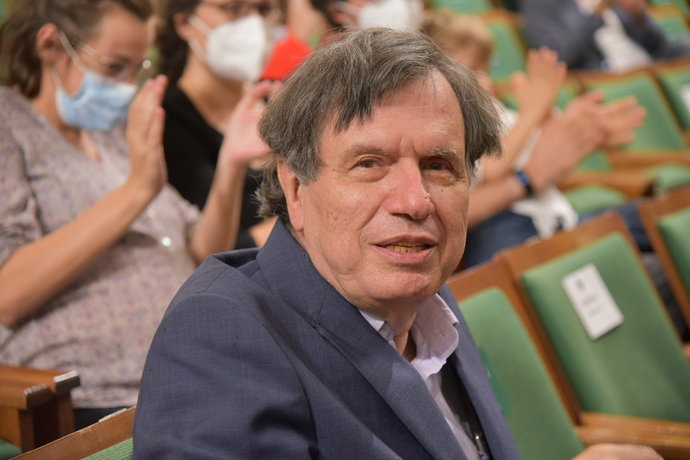
This year's Nobel Prize in Physics is awarded "for the discovery of the interplay of disorder and fluctuations in physical systems from atomic to planetary scales." One half goes to Professor Giorgio Parisi "for the discovery of the interplay of disorder and fluctuations in physical systems from atomic to planetary scales", the other half jointly to the climate researchers Professor Syukuro Manabe and Professor Klaus Hasselmann “for the physical modelling of Earth’s climate, quantifying…
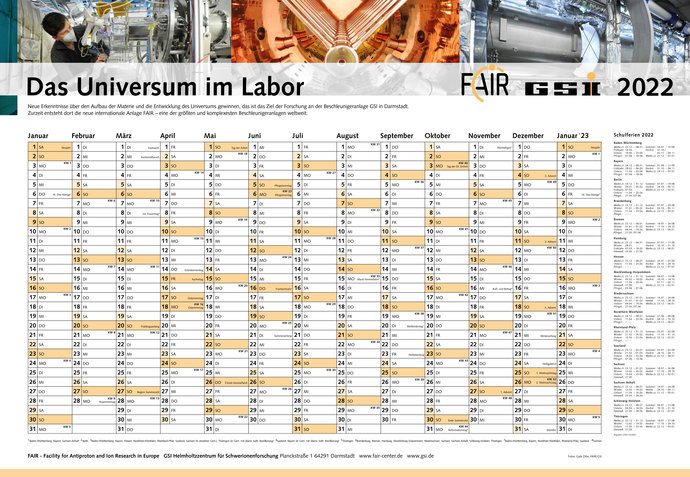
The useful year planner has enjoyed great popularity for many years. It lists all public and school holidays. It offers a good overview of the year and is a useful planning aid for many people.
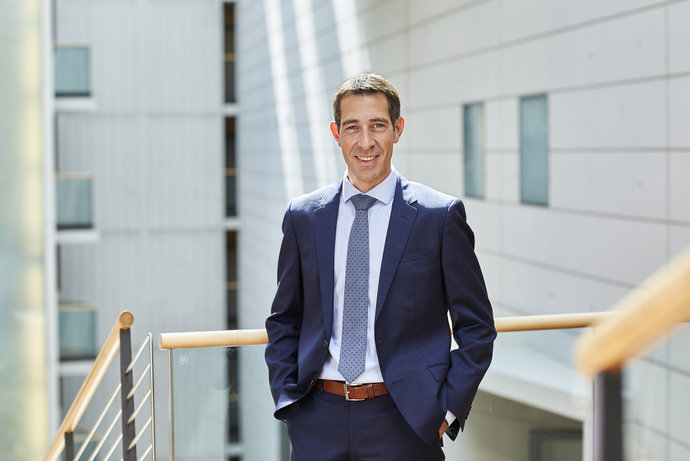
The Otto Hahn Prize 2021 goes to nuclear physicist Professor Klaus Blaum of the Max Planck Institute for Nuclear Physics in Heidelberg. The award is endowed with 50,000 euros and is jointly sponsored by the City of Frankfurt am Main, the German Chemical Society (GDCh) and the German Physical Society (DPG). The award ceremony took place on November 5 in the festive setting of Frankfurt's Paulskirche. Through his scientific work, but also through important committee activities, Klaus Blaum has…
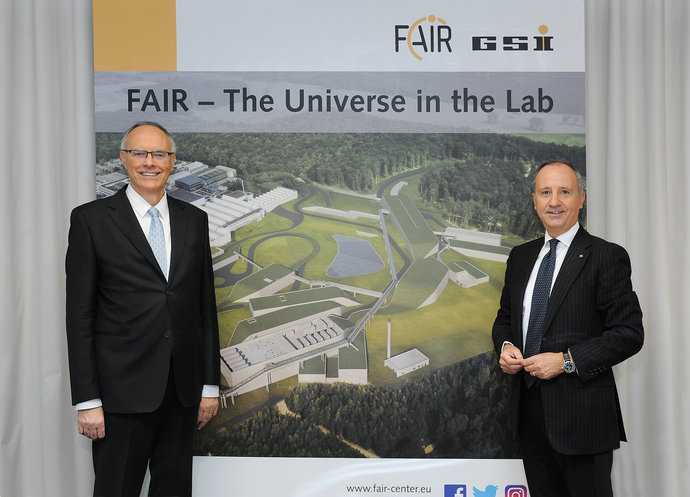
High-ranking visit on the GSI/FAIR campus in Darmstadt: The Italian Ambassador H.E. Armando Varricchio was recently a guest at GSI and FAIR. Together with the Italian Consul General Andrea Esteban Samà from Frankfurt and Culture Attaché Dr. Michele Santoriello, he informed himself about the successes and perspectives of research at GSI and FAIR and took the opportunity to meet Italian scientists on site.
GSI Biophysicists Dr. Christian Graeff and Dr. Burkhard Jakob receive professorships at TU Darmstadt
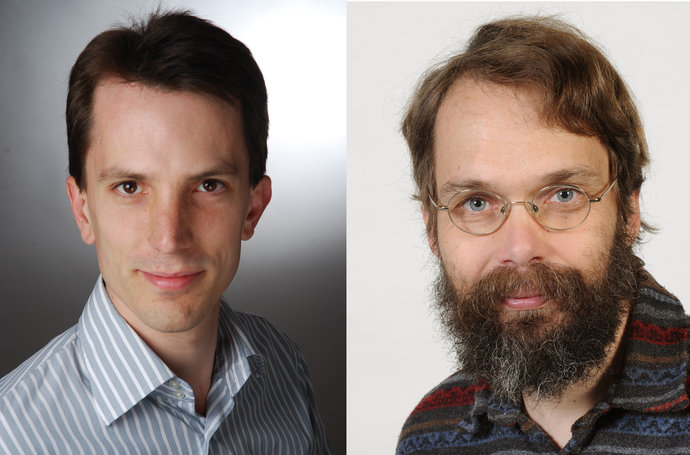
Two new professorships strengthen the profile of GSI/FAIR in research and teaching: Dr. Christian Graeff and Dr. Burkhard Jakob, both from GSI's Biophysics Department, will hold a teaching position as professors at the TU Darmstadt starting from the winter term.
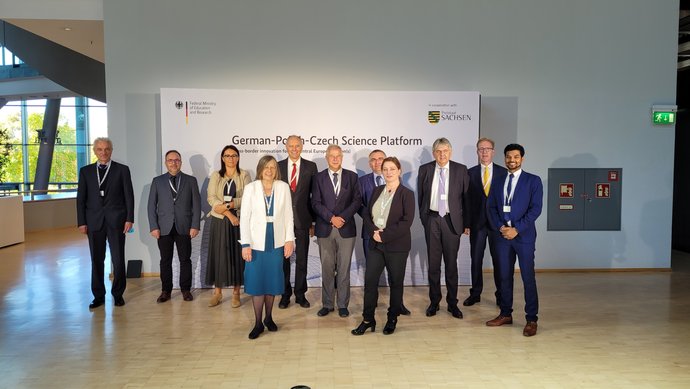
A new cooperation agreement strengthens the link between GSI/FAIR and the two Polish universities Wrocław University of Science and Technology (WUST) and University Wrocław (UWr). The agreement within the framework of the GET_INvolved program was signed recently in Dresden during the German-Polish-Czech Science Platform, an international science conference at the invitation of Federal Research Minister Anja Karliczek in cooperation with the Minister-President of Saxony Michael Kretschmer.

With the WASA detector, a very special instrument is currently being set up at GSI/FAIR. Together with the fragment separator FRS, it will be used to produce and study so-called hypernuclei during the upcoming experiment period of FAIR Phase 0 in 2022. For this purpose, the assembly, which weighs several tons, is being transferred to the facility in a complex installation procedure. The scientific relevance of the planned experiments with hypernuclei is also shown by a recent review article in…
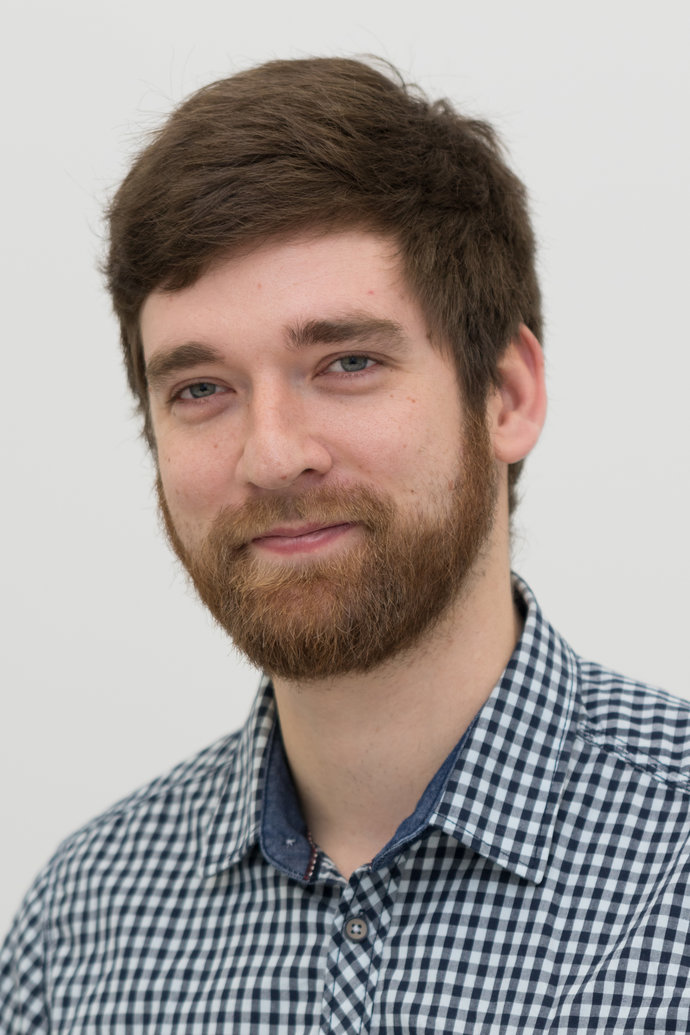
Robert Klas of Helmholtz Institute Jena, a branch of GSI, has received this year's PhD Award of the SPARC Collaboration. The SPARC PhD Award 2021 was presented online during the 18th workshop of the collaboration in September. The award was given in recognition of Klas's PhD thesis “Efficiency Scaling of High Harmonic Generation using Ultrashort Fiber Lasers”.
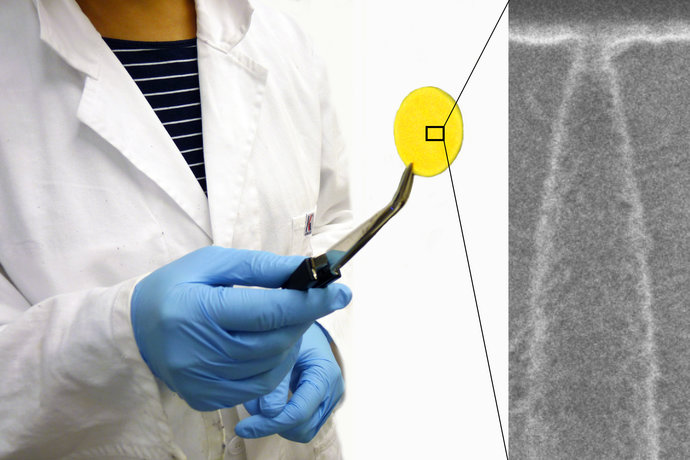
Easy and fast detection of viruses are crucial in a pandemic. Based on single-nanopore membranes of GSI, an international interdisciplinary team of researchers developed a test method that detects SARS-CoV-2 in saliva, without sample pretreatment, with the same sensitivity as a qPCR test, and in only 2 hours. On top, the sensor can distinguish infectious from non-infectious corona viruses — a crucial innovation.











